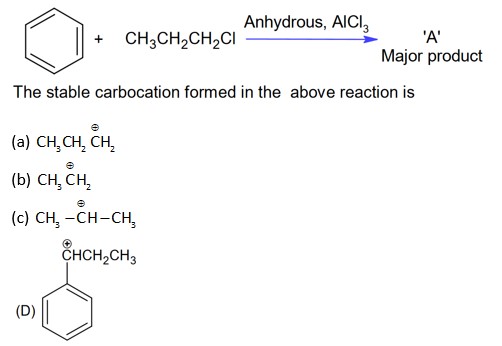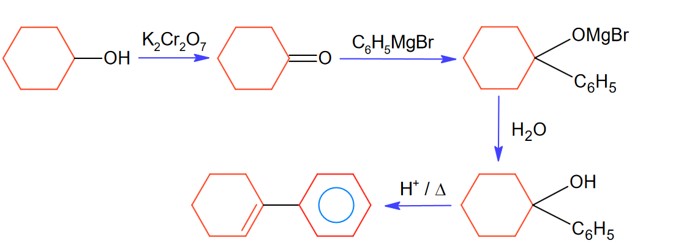Chemistry Organic Chemistry
Get insights from 71 questions on Chemistry Organic Chemistry, answered by students, alumni, and experts. You may also ask and answer any question you like about Chemistry Organic Chemistry
Follow Ask QuestionQuestions
Discussions
Active Users
Followers
New answer posted
4 months agoContributor-Level 10
With AlCl3, alkyl halide will form cabocation which will show rearrangement.
New answer posted
4 months agoContributor-Level 9
Organic chemistry is applied in pharmaceuticals, the food industry, the manufacture of polymers, agriculture, and environmental science. Most of the things that we use in daily life, such as soaps and medicines, are made of organic molecules.
New answer posted
4 months agoContributor-Level 9
The main difference between organic compounds and inorganic compounds is that organic compounds contain carbon atoms from bonds with hydrogen and other elements, whereas inorganic compounds don't have carbon atoms (except carbonates and cyanides).
New answer posted
4 months agoContributor-Level 9
In class 11 organic chemistry, the important chapters are hydrocarbons, classification of organic compounds, isomerism, method of purification of organic compounds, and Qualitative and quantitative analysis of organic compounds.
New answer posted
4 months agoContributor-Level 9
Number of moles of C = Number of moles of CO2 = moles
Number of moles of H = 2 * no. of moles of H2O = moles
Mass of C = gm = 90 gm
Mass of H =
New answer posted
4 months agoContributor-Level 10
The order of stability of resonating structures: carrying no charge carrying minimum charge and each atom having octet complete.
Taking an Exam? Selecting a College?
Get authentic answers from experts, students and alumni that you won't find anywhere else
Sign Up on ShikshaOn Shiksha, get access to
- 66k Colleges
- 1.2k Exams
- 681k Reviews
- 1800k Answers






